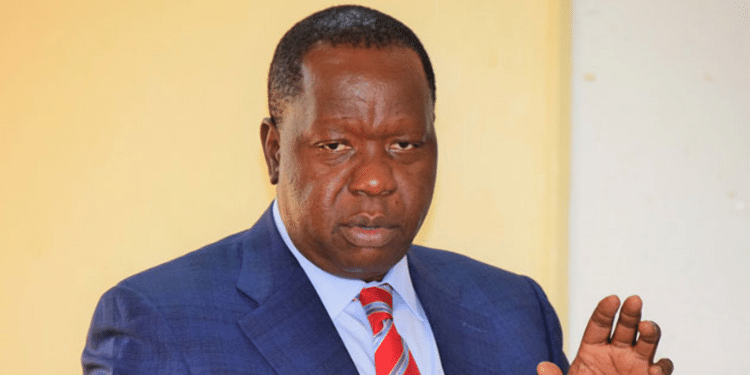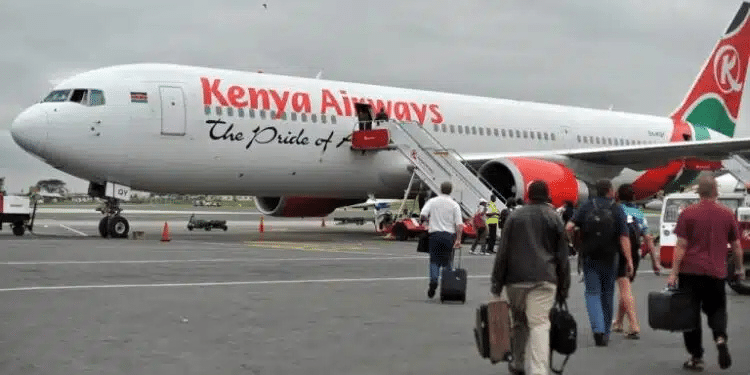Kenyan government’s move to approve requests by millers to import over 3.2 million tonnes of wheat has continued to spark jitters among farmers in the country.
Although the farmers have protested the importation of cheap wheat into the country, at least Ksh124.5 billion worth of the product is still set for importation.
In a statement dated February 17, CEO of the Cereal Millers Association (CMA) of Kenya Paloma Fernandes, warned of a possible increase in wheat prices, arguing that millers were prioritizing buying from local farmers.
According to Fernandes, millers are purchasing local wheat at Ksh5,300 per 90kg bag in the 2024/2025 season, a rate higher than the global import parity price of between Ksh3,500 to Ksh3,700.
However, he revealed that the delicate balance between buying locally, and importation was threatened by severe delays in government import approvals, leading to high costs at the port.
Also Read: Ruto Bans Importation of Maize and Wheat
The 35 Tycoons Behind the Billion Shilling Wheat Import
According to a report by Nation, a group of 35 millers, which includes major players within the industry, have been given licenses to bring in massive wheat consignments, despite the promise to prioritize local farmers.
This means that the leading flour brands, including Dola, Raha, and Soko, will now rely heavily on imported wheat, sidelining local production.
Among the key players in this industry is Kitui Flour Mills, owned by Said Salim Ahmed Mohamed, Ahmed Taib, and Abubaker Salim.
Also on the list is Joy Millers Ltd, under the ownership of Julius Comoba Nyaga, and Capwell Industries Ltd that is controlled by Rana Dalchand Shah, Dalichand Lakhamsi Shah, and Chhetan Dalchand Lakhamsi Shah.
Another importer is Kabiru Flour Mills Ltd, owned by Rahim, Ahmedali Hasham, and Hasham Investment Holdings Ltd.
Other major millers include Bakex Millers Ltd, Alpha Grain Millers Ltd, Rafik Millers Ltd, Luckyway Flour Mills Ltd, Malindi Flour Mills Ltd, and Jami Milling Ltd, though their shareholders remain undisclosed.
Eldoret Grains Ltd shares ownership with Kitui Flour Mills, being controlled by Said Salim Ahmed Mohamed, Ahmed Taib, and Abubaker Salim.
Additionally, Weetabix East Africa is owned by Weetabix Ltd (UK) and Pioneer Foods PTY Ltd (South Africa).
In terms of wheat importation, Dola and Jahazi brands lead with a combined 324,000 tonnes, followed by Raha at 200,000 tonnes, Soko at 65,000 tonnes, and Kitui Flour at 60,000 tonnes.
Vitafla is set to import 50,000 tonnes, while several other brands will import smaller amounts.
Also Read: Manufacturers Warn Of Crisis Over Maize,Wheat Shortage
Ruto Bans Import of Wheat
In October 2023, President William Ruto announced the ban of importation of wheat and maize into the country, stating that the move would protect local farmers.
He also promised to allocate Ksh4 billion to buy grains from the local farmers to stabilize the prices of food in the country.
“We ask our farmers not to sell their produce at throw-away prices. Even if farmers don’t want to sell their maize to National Cereals and Produce Board (NCPB), they will have an opportunity to dry their produce at the State agency and store it,” Ruto stated at the time.
Follow our WhatsApp Channel and join our WhatsApp Group for real-time news updates









































































